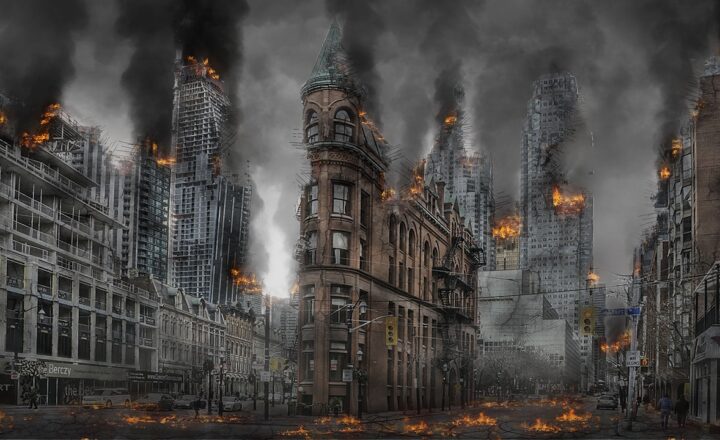Life Lessons from Historical Conflicts: What We Can Learn from the Past
November 18, 2024

Throughout history, conflicts have shaped societies, defined nations, and influenced the course of human events. While the wars and upheavals of the past may seem distant, the lessons they impart remain relevant today. Understanding these historical conflicts not only provides context for our present but also offers invaluable insights into human behavior, governance, and social dynamics.
1. The Nature of Power: Lessons from World War II
World War II remains one of the most studied conflicts in history, providing profound lessons on power dynamics. The rise of totalitarian regimes in Germany and Japan illustrated how extreme ideologies can gain traction during periods of economic distress.
From this, we learn the importance of vigilance against the concentration of power and the dangers of unchecked authority. Democracies must remain active and engaged, ensuring that leaders are held accountable and that policies reflect the will of the people, not the desires of the few.
2. The Fragility of Peace: Reflections on the Treaty of Versailles
The Treaty of Versailles brought an end to World War I but also laid the groundwork for future conflicts, including World War II. The harsh penalties imposed on Germany soured national sentiments and fostered resentment, ultimately contributing to the rise of fascism.
This teaches us that peace settlements recognize the complexity of human emotions and national identities. Sustainable peace requires understanding and compromise rather than punitive measures. As seen in modern diplomacy, lasting resolutions must include dialogue and mutual respect.
3. The Impact of Social Movements: Lessons from the American Civil Rights Movement
The American Civil Rights Movement of the 1960s showcased the power of collective action and grassroots mobilization. Activists like Martin Luther King Jr. demonstrated that nonviolent protest can lead to significant societal change.
Today, contemporary movements—be it Black Lives Matter or climate activism—draw inspiration from these historical struggles, reminding us that persistent advocacy and inclusive coalitions are vital for creating meaningful change. The lesson here is that individuals have the power to shape societal norms and policies through organized action.
4. The Costs of War: Insights from the Vietnam War
The Vietnam War is often referenced to highlight the catastrophic human and societal costs of conflict. The war’s outcome forced the United States to reevaluate its foreign policy and military interventions.
One significant lesson is the importance of understanding local contexts and the consequences of military dominance. Modern decisions regarding military engagement must consider long-term repercussions, not just immediate gains. This realization emphasizes the need for diplomacy and cooperation over warfare.
5. Resilience and Recovery: Lessons from Post-Conflict Societies
Countries such as Rwanda, following the genocide in 1994, serve as examples of resilience and recovery from deep societal divides. The process of healing and rebuilding can take many forms, from truth commissions to community-driven initiatives.
The vital lesson drawn from Rwanda’s recovery is that addressing historical injustices and fostering dialogue is crucial for reconciliation. Societies can emerge stronger when they actively engage in understanding their past and committing to inclusive future-building.
6. The Importance of Diplomacy: Reflections on the Cuban Missile Crisis
The Cuban Missile Crisis stands out as a critical moment of diplomacy succeeding where military aggression could have resulted in global catastrophe. The ability of leaders to negotiate under pressure prevented a potential nuclear war, emphasizing the importance of communication.
This teaches the importance of diplomatic channels in mitigating conflicts. Open dialogues and negotiations can often resolve tensions and prevent conflicts from escalating. In a globalized world, maintaining international relationships is essential for peace and stability.
Conclusion: The Need for Reflection and Understanding
The lessons learned from historical conflicts are not merely academic exercises; they provide essential insight into the human condition. They remind us of the recurring themes of power, justice, resilience, and the pursuit of peace.
As we navigate the complexities of modern life, let us draw from the wisdom of the past, ensuring that our principles and actions reflect the lessons learned. Understanding our history allows us to forge a better future, fostering a world centered on empathy, communication, and collective advancement.








